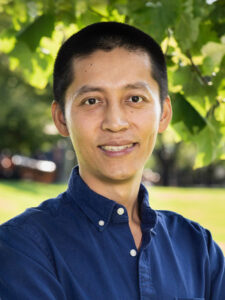
Jing-Ke Weng - Northeastern University College of Engineering
Harnessing plant metabolism for new catalysts, medicines, and materials
Abstract:
Plants contain diverse specialized metabolites, many of which are of significant pharmaceutical and industrial importance to humans. Nevertheless, exploration of specialized metabolic pathways underlying specific chemical traits in nonmodel plants has been technically challenging and historically lagged behind that of the bacterial systems. Recent advances in genomics, metabolomics, phylogenomics, and synthetic biology now enable a new workflow for interrogating unknown specialized metabolic systems in nonmodel plant hosts with greater efficiency and mechanistic depth. In this talk, I will discuss our current effort in elucidating a number of specialized metabolic pathways in various medicinal plants using such workflow. Facilitated by this newly learnt knowledge, we engineer chassis organisms to produce valuable plant natural products and their new-to-nature analogs with broad industrial, agricultural, and pharmaceutical utilities. In addition to small-molecule natural products, plants also produce a wide range of macromolecular biopolymers which are key to plants’ adaptation to the terrestrial environments. I will also discuss our recent effort in studying the chemistry, biochemistry and evolution of sporopollenin, an extremely inert biopolymer that coats the outer wall of all land plant spores and pollen grains. Engineering sporopollenin-like synthetic polymers and sporopollenin biosynthesis in crop plants may open new avenues for new materials and scalable strategies for mitigating climate change.
Bio:
Jing-Ke Weng is the Inaugural Director of Institute for Plant-Human Interface (IPHI) and a Professor of Chemistry, Chemical Biology, and Bioengineering at Northeastern University. He was a member of the Whitehead Institute for Biomedical Research and an Assistant and Associate Professor of Biology at MIT between 2013 and 2023. He was a Pioneer Postdoctoral Fellow at the Salk Institute and HHMI between 2009 and 2013. He received his BS in Biotechnology from Zhejiang University and PhD in Biochemistry from Purdue University.



